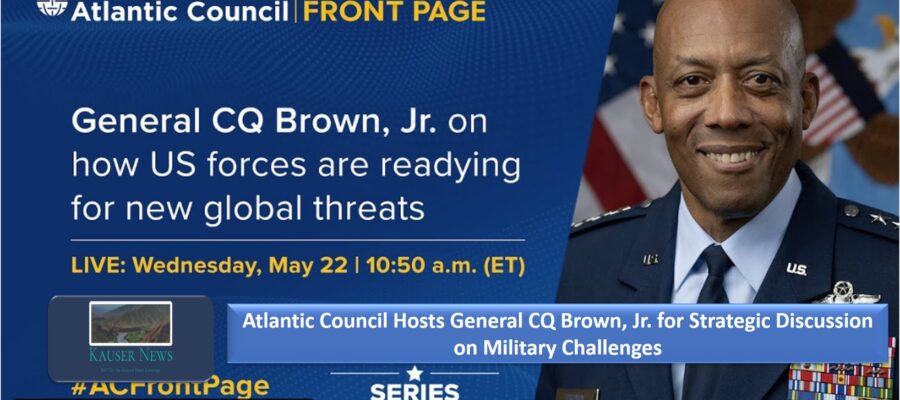On Wednesday, May 22 at 10:50 a.m. ET, the Atlantic Council will host an #ACFrontPage conversation featuring General CQ Brown, Jr., the Chairman of the Joint Chiefs of Staff. This event, part of the Scowcroft Center for Strategy and Security’s flagship Commanders Series programming, is generously supported by Saab. General Brown will address the myriad challenges currently confronting the United States Joint Force and outline strategic priorities for the future.
Today’s global landscape presents a complex array of security challenges for the U.S. military. The ongoing war in Ukraine has underscored the volatility in Eastern Europe, where Russian aggression continues to pose a significant threat. In the Middle East, persistent conflicts and instability demand sustained attention and resources. Meanwhile, in the Indo-Pacific, rising tensions with China and North Korea highlight the region’s strategic importance and potential for conflict.
As the U.S. navigates these immediate threats, it must also consider long-term strategic competition with great-power rivals. China and Russia are advancing their military capabilities and expanding their global influence, necessitating a robust and adaptive response from the U.S. military. This environment of heightened rivalry and persistent instability challenges the United States to maintain its military superiority and readiness.
General Brown will discuss the U.S. military’s approach to prioritizing efforts across the Joint Force to meet these diverse challenges. His insights will likely cover several key areas:
- Military Readiness and Resilience: Ensuring that U.S. forces are well-prepared and capable of responding to a range of global threats is a top priority. This includes maintaining technological superiority, robust training programs, and the ability to rapidly mobilize and sustain operations in various theaters.
- Technological Advancements: The U.S. must continue to innovate and integrate advanced technologies to stay ahead of adversaries. This involves investments in cyber capabilities, artificial intelligence, and other cutting-edge fields that can provide a strategic edge.
- Strategic Partnerships and Alliances: Strengthening alliances and building new partnerships is crucial for a collective security approach. Collaboration with NATO, Indo-Pacific allies, and other international partners enhances the U.S. military’s reach and effectiveness.
- Resource Allocation: Efficient and strategic allocation of resources will be essential to balancing the demands of ongoing conflicts and preparing for future challenges. This includes optimizing defense budgets, managing personnel, and ensuring sustainable force levels.
Looking Ahead
In the coming years and decades, the U.S. military’s ability to adapt and prevail in an increasingly complex global environment will be critical. General Brown’s discussion at the Atlantic Council will provide valuable insights into how the Joint Force is evolving to meet current and future challenges. His leadership and strategic vision will guide efforts to maintain the United States’ enduring military advantage amidst a landscape of continuous and emerging threats.
The event promises to be a significant platform for understanding the strategic direction of the U.S. military and the broader implications for national and global security. Attendees and observers can expect a comprehensive overview of the challenges at hand and the proactive measures being implemented to ensure readiness and resilience in an unpredictable world.





